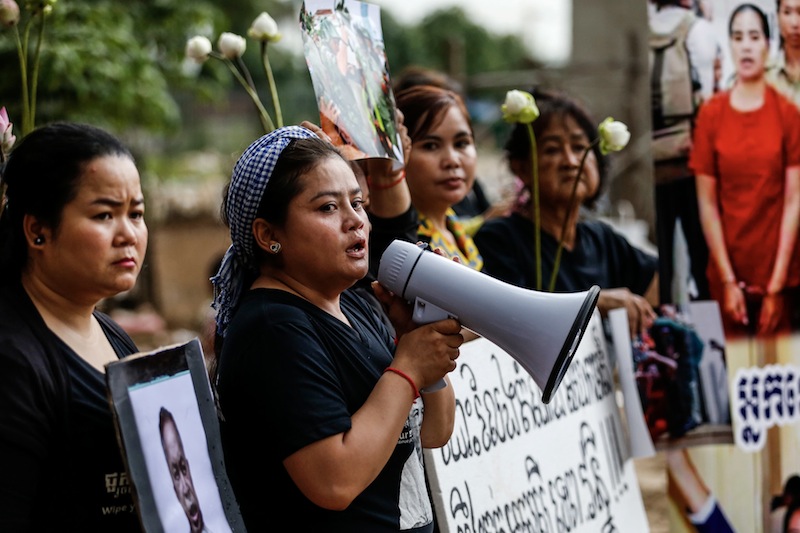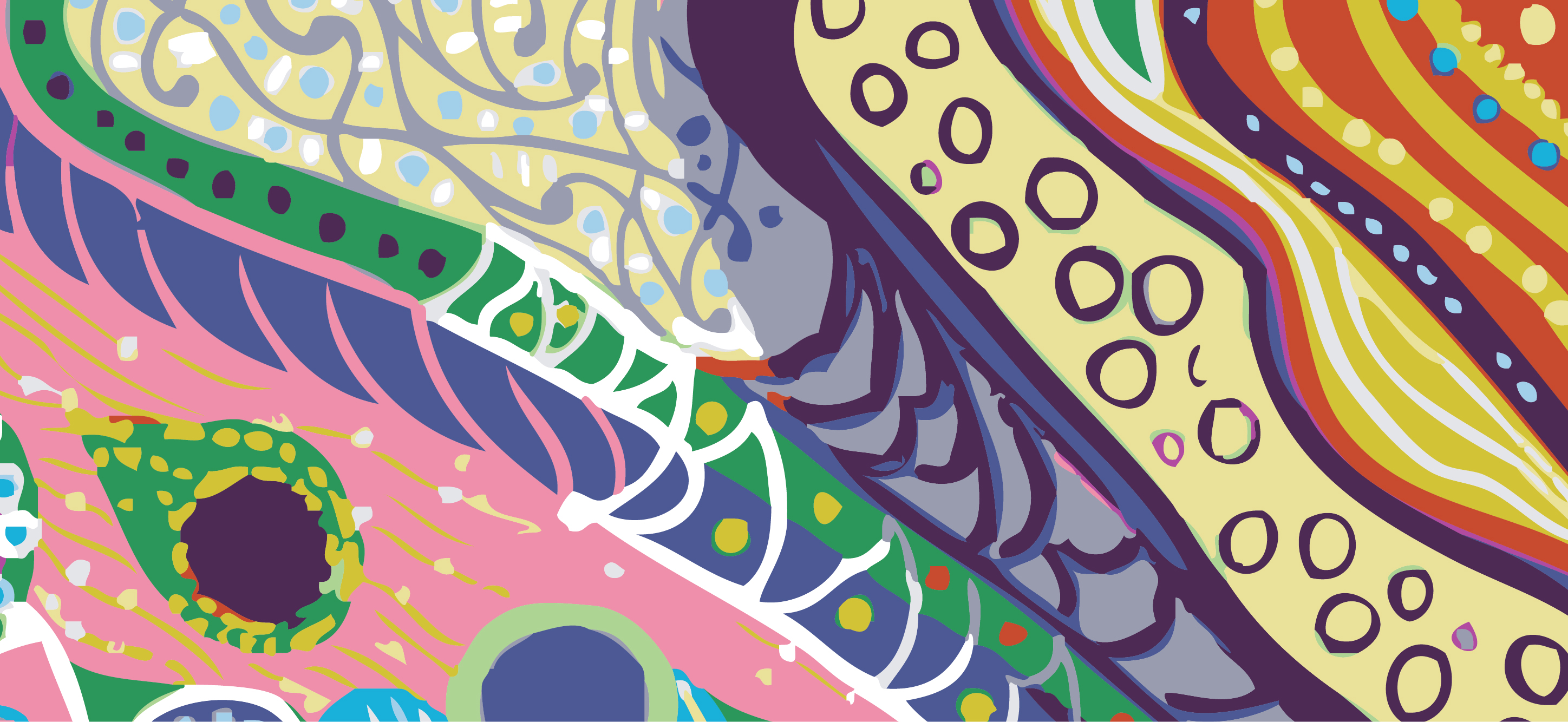
Photo by Siv Channa/The Cambodia Daily
International Women’s Day is a day to “celebrate the social, economic, cultural and political achievement of women”, and while there is certainly much to celebrate, it is also undeniable that we are seeing a massive rollback on hardwon women’s human rights all over the world and rising conservatism that is challenging our fundamental freedoms. One of the ways in which we see this manifest is through ever closing space for civil society including women’s rights organisations and women human rights defenders. Here we echo former United Nations Special Rapporteur Maina Kiai’s words that “I prefer the term ‘closing’ civic space, as opposed to ‘shrinking’ because ‘closing’ is a conscious act.” Closing space for civil society comes in many forms whether it is incarceration, heavy regulations, restrictions on funding, barriers to freedom of speech and even murder. As Dhananjayan Sriskandarajah aptly puts, “scope for citizen action is constrained and getting worse in much of the world, including some countries where one might least expect it”. As the space for civil society closes in, a negative domino effect is imminent for various stakeholders, from those whose rights need protecting, to those who help protect them.
Today on International Women’s Rights Day, we highlight examples of closing space for civil society with a focus on women’s human rights and the Global South, and what must be done and is being done to reclaim our space.
1) State Authoritarianism
We see many states turning into authoritarian regimes that introduce, implement and interpret laws and regulations as well as carry out extrajudicial actions that, among other things, serve as barriers to civil society engagement. Or in other words, states weaponise and manipulate laws and legal systems against civil society. For an example, in Cambodia we see an ongoing breakdown of democracy and along with it a crackdown against NGOs largely due to recent constitutional amendments. Naly Pilorge of the Licadho human rights group in Cambodia that works against land seizures was recently quoted saying “Local NGOs have been paralyzed and scattered. “People say space is closing. It’s not closing, it’s closed.” Similar reports are arising from Myanmar where a police crackdown on a protest by Rakhine ended in seven deaths and the injury of 12 others. Egypt and Saudi Arabia are just two other examples of countries authoritarianism is rearing its ugly head for civil society organizing and for women human rights defenders in particular.
2) Fundamentalism and Extremism
The global rise in authoritarianism has been coupled with an open embrace of fundamentalist and extremist ideologies by “mainstream” political actors. As the UN Special Rapporteur in the field of cultural rights states in her recent report, women human rights defenders are finding themselves in the line of fire, caught in between “non-State fundamentalists or extremists, on the one hand, and repressive Governments, on the other, both of which seek to constrain the action needed to defend human rights.” Not only are States failing in their duty to protect human rights defenders from extremist attacks being carried out with impunity such as in the brazen killings of Gauri Lankesh in India, Sabeen Mahmud in Pakistan and Xulhaz Mannan and Mahbub Rabbi Tonoy in Bangladesh, they are fuelling the normalization of extremist ideologies by blaming the human rights defenders for their deaths.
3) Corporate Capture
ESCR-Net describes corporate capture as “the means by which an economic elite undermine the realization of human rights and the environment by exerting undue influence over domestic and international decision-makers and public institutions.” Characteristics of corporate capture include but are not limited to judicial interference, legislative and policy interference, and community manipulation.
Corporations wield a greater influence than ever before and this has created situations where their human rights violations are being conveniently slipped under the radar, sometimes with state complicity. Investor state dispute settlement (ISDS) mechanisms are giving corporations the power to take direct legal action against States creating further barriers to flag human rights violations by corporations and hold them as well as the state accountable for their obligations.
The Research Centre for Gender, Family, and Environment in Development (CGFED) and IPEN recently published a study entitled “Stories of Women Workers in Vietnam’s Electronics Industry” on the working conditions at Samsung’s mobile phone factories in Vietnam. The numerous and alarming findings included the fact that none of the workers had received copies of their contracts, they experienced health issues regularly including miscarriages, and that the company’s approach had created a chilling effect among workers that prevented them from speaking out about working conditions. A statement from CGFED and IPEN revealed that “in Vietnam and abroad, Samsung has been actively attempting to suppress and discredit this study that documents a number of concerning health and safety violations.”
4) Funding Cuts
Funding, or the lack thereof, has been a major factor in closing space for civil society engagement. Women Peacemakers Program (WPP) that shutdown after 20 years shared their challenges around funding in a statement that would resonate with most women’s rights organizations working around the world. “The current competition-fuelling grant industry is increasingly pitting civil society against each other, and too often merely caters for a narrow segment of civil society, the one that can swallow large budgets, immense amounts of bureaucracy and which can produce enormous paper trails, all under the name of “accountability”. This increasingly cuts off direct support to those who do crucial work on the ground across the globe – the people movements, the brave young activists organizing themselves in the face of war, the women human right defenders risking their lives on a daily basis, the activist groups that keep a critical eye on those in power.”
While the case of WPP illustrates one side of the funding challenge, we also see states restricting funding as a punitive measure by imposing rules that strictly control the funding of NGOs as with the new law regulating NGOs in Egypt or by freezing access to funds as in the recent case of the Ugandan government shutting down the bank accounts of ActionAid Uganda and demanding bank account details of 25 other NGOs.
It is also important to note the role Official Development Assistance (ODA) plays in the funding crisis faced by civil society organizations. “ODA serves predominantly the interests of donor countries and private corporations, and how it seeks to, or results in, keeping recipient countries in a state of dependence, thus masking the flow of resources from low-income countries to donor countries,” notes RESURJ in Cut the Strings: Bodily Autonomy Needs Sustainable Funding.
5) Effect on Our Activism
We at IWRAW AP, along with our partner organizations from across the Global South, are experiencing firsthand the effect of this closing space on our activism and work. Through our work engaging with the CEDAW Committee and facilitating NGO participation in the CEDAW review process, we have seen numerous women’s human rights defenders facing barriers, whether in terms of funding and travel documents to attend the CEDAW session or surveillance by the state or threats by state agents to personal security or to the security of families back home because of participation in sessions.
Closing space for civil society results in a chilling effect, especially when you see activists being killed for upholding human rights. Nowhere else has this escalated as in environmental activism, with The Guardian reporting that just in 2017 197 people were killed for defending land, wildlife or natural resources. From Berta Cáceres who was assassinated in 2016 to Efigenia Vasquez who was shot and killed just a few months ago, women human rights defenders of the commons and the environment keep facing constant attacks, either by the state or corporations or very often by both.
Reclaiming Our Space
Even as our space for civil society engagement keeps closing, we continue the fight to reclaim our space. From the grassroots to the global level, there is a clarion call by civil society organizations, especially feminist and women’s rights organizations, to hold the line on what we’ve achieved and to break new ground.
The current issue of Sur Journal (International Journal on Human Rights) on Reclaiming Civic Space shares examples from both the Global South and the Global North on how organizations and activists are strategizing against challenges, both old and new. The Women’s Action Forum (WAF) in Pakistan is creating awareness on feminist and social issues within the country via social media and email threads. It’s become “a symbol of feminist resistance across Pakistan”, despite repressive laws and restricted spaces that impact women.
We see NGOs such as Peuples Solidaires file lawsuits against corporations for violations of human rights and labor rights. We see the UN Working Group on Business and Human Rights recognize “the increasing attacks on human rights defenders speaking up against business-related impacts on people and the environment”, and begin a multistakeholder collaboration on a guidance tool on state protection of and business respect for HRDs in line with the UN Guiding Principles on Business and Human Rights (UNGPs). IWRAW AP is engaged with the ongoing work to introduce a binding treaty on transnational corporations and other business enterprises with respect to human rights.
There is also resistance from feminist and women’s rights organizations against the travel, funding and security restrictions that prevent women human rights defenders from engaging in global spaces such as the CEDAW and other treaty body reviews, and the Commission on the Status of Women (CSW). This is further exacerbated for marginalized groups of women who face additional barriers, especially in terms of meeting visa requirements and procuring necessary travel documents. FEMNET is highlighting the irony of the denial of visas for rural women to attend this year’s CSW while the priority theme is “Challenges and opportunities in achieving gender equality and the empowerment of rural women and girls”. Last year Women’s International League for Peace and Freedom (WILPF) organized a convening to draw attention to the state and corporate capture of the UN and to call for reclaiming the UN. Participants at the convening raised the fact that there is “a real and serious crisis of legitimacy, credibility and trust in the UN” including the rollback of state obligations and commitments to deliver on UN frameworks for women’s rights and meaningful participation.
This International Women’s Day we celebrate and stand in solidarity with the continued resistance of civil society against the various forces that are closing our space for engagement.

